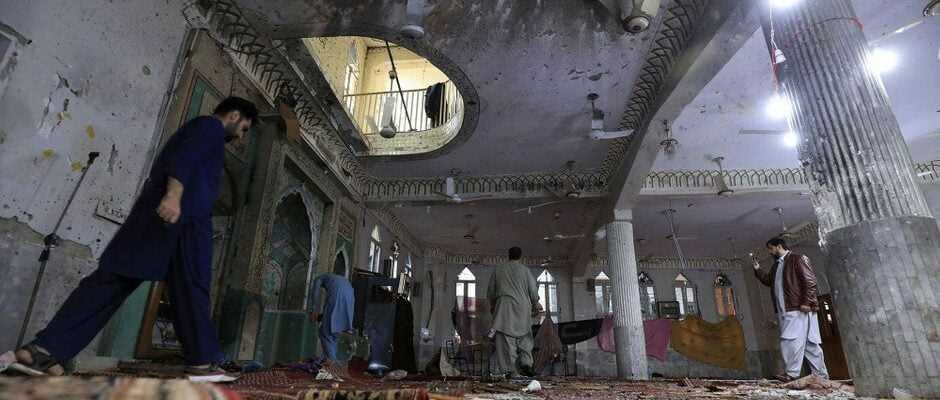The suicide attack committed in a Shiite mosque in Peshawar, in northwestern Pakistan and claimed by the Islamic State (IS) organization, left 62 dead, according to a new report announced on Saturday by the police.
The suicide attack committed in a Shiite mosque in Peshawar, in northwestern Pakistan and claimed by the Islamic State (IS) organization, left 62 dead, according to a new report announced on Saturday by the police. It also released CCTV footage of the attack showing a man, wearing traditional clothing consisting of loose trousers and a long, loose tunic, shooting at two police officers at the entrance. main mosque in the Risaldar district.
The man then detonated an explosive belt filled with ball bearings that ripped through the crowded building moments before Friday prayers began. The IS organization claimed responsibility for this attack. “There are seven unrecognizable bodies, including two amputated feet, which we believe are those of the suicide bomber,” Peshawar police chief Muhammad Ijaz Khan told AFP. “We are trying to establish the identity of the perpetrator of the attack from DNA tests.” Mr. Ijaz said that among the 62 victims are seven children under the age of 10.
Several claimed attacks
This is the deadliest attack since 2018, during an electoral rally in Mastung, in the province of Baluchistan (southwest), which had killed 149 people and had been claimed by IS. Ijaz said authorities were checking the biometrics of people who recently crossed the Pakistani border from Afghanistan, where terror groups have previously planned attacks.
Peshawar, about fifty kilometers from the border with Afghanistan, was ravaged by almost daily attacks during the first half of the 2010s, but security had greatly improved there in recent years. In recent months, the city had mainly experienced targeted attacks aimed first at the security forces. Shias in Pakistan have in the past been targeted by the IS group. Its regional branch, the Islamic State-Khorasan (EI-K), has claimed responsibility for numerous attacks in the country in recent years, such as the assassination in early 2021 of ten Hazara minors, an ethnic Shiite group, in Balochistan.
In addition, Pakistan has been confronted for several months with the return in force of the Tehreek-e-Taliban Pakistan (TTP), the Pakistani Taliban, galvanized by the coming to power of the Afghan Taliban in August in Afghanistan. The TTP, a movement distinct from that of the new Afghan leaders but which shares common roots with it, has claimed responsibility for several attacks since the beginning of the year.
Any reproduction prohibited
